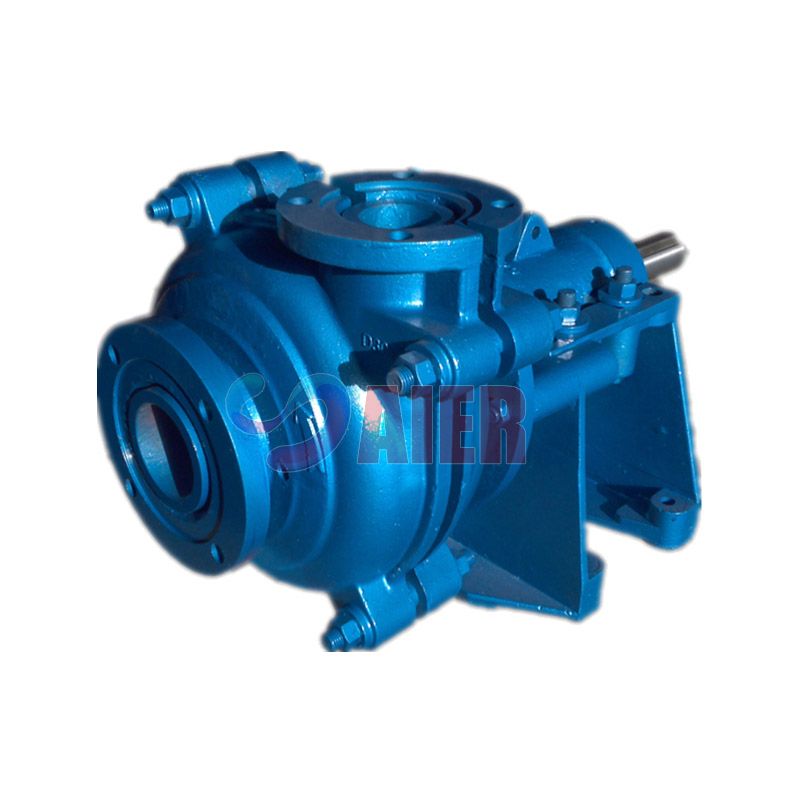Dec . 06, 2024 11:18 Back to list
rubber slurry pump impeller
The Importance of Rubber Slurry Pump Impellers in Industrial Applications
In the heart of many industrial processes lies the need to efficiently transport slurries—mixtures of solids and liquids that can be abrasive, corrosive, or highly viscous. One of the key components enabling this functionality is the impeller within a rubber slurry pump. These specialized pumps are designed to handle tough materials, and the choice of the impeller material plays a crucial role in determining performance, durability, and maintenance requirements.
Understanding Slurry Pumps and Their Components
Slurry pumps are engineered to move mixtures of water and solid particles, which can range from sand and gravel to more complex substances found in mining, wastewater treatment, and chemical processing. The pivotal part of a slurry pump is the impeller, which is responsible for imparting energy to the fluid and facilitating its movement through the system. In rubber slurry pumps, impellers are made from rubber compounds, specifically designed to withstand harsh operating conditions.
Advantages of Rubber Impellers
1. Wear Resistance One of the most significant advantages of rubber impellers in slurry pumps is their exceptional wear resistance. Rubber materials can absorb impacts and reduce abrasion, which is vital when handling coarse solids. This property helps in prolonging the lifespan of the impeller compared to metal alternatives.
2. Corrosion Resistance Many slurries contain corrosive components that can rapidly degrade metal components. Rubber impellers resist corrosion caused by chemicals or varying pH levels in slurries, making them suitable for industries such as mining and chemical processing.
3. Lightweight and Low Noise Rubber impellers are significantly lighter than their metal counterparts, leading to easier installation and reduced energy consumption. Additionally, they tend to operate more quietly, enhancing the working environment in plants where these pumps are utilized.
4. Flexibility and Self-Compensation The inherent flexibility of rubber allows for self-compensation of wear over time. As the impeller wears down, it can conform to changes in shape, which helps maintain performance levels without the need for immediate replacement.
Design Considerations for Rubber Slurry Pump Impellers
rubber slurry pump impeller

When designing rubber slurry pump impellers, several critical factors must be considered
- Material Selection The specific type of rubber used in the impeller affects its performance. Various rubber compounds, such as natural rubber, neoprene, and urethane, offer different properties in terms of hardness, temperature resistance, and chemical compatibility.
- Impeller Geometry The design and geometry of the impeller will influence its efficiency and the slurry’s flow characteristics. Factors such as the number of vanes, vane shape, and overall dimensions must be optimized for the particular application to ensure optimal performance.
- Operating Conditions Understanding the specific operating conditions, including pressure, temperature, and the nature of the slurry being pumped, is vital. These factors drive the design and material selection process to ensure the impeller performs effectively under real-world conditions.
Maintenance and Operational Best Practices
While rubber impellers are robust and engineered for durability, proper maintenance is essential to maximize their operational life. Regular inspection for signs of wear, maintaining proper alignment, and ensuring the pump operates within its recommended parameters can prevent premature failure.
Moreover, operators should be trained on the unique characteristics of rubber slurry pumps. For instance, they should be aware that while rubber impellers can handle abrasive materials, certain types of solids may still lead to increased wear and tear. By selecting suitable slurries and monitoring the pump’s performance, businesses can optimize the pump's efficiency while minimizing maintenance costs.
Conclusion
In conclusion, rubber slurry pump impellers play a vital role in the effective and efficient transport of abrasive and corrosive slurries across various industrial applications. Their unique properties, including wear and corrosion resistance, lightweight design, and flexibility, make them an excellent choice for industries that require reliable and durable performance. Proper design, selection, and maintenance of rubber impellers ensure that they remain a vital component in the field of industrial pumping technology. As industries continue to evolve and demand more robust solutions for handling challenging materials, rubber slurry pump impellers will undoubtedly remain at the forefront of innovation and reliability.
-
China SP Slurry Pump Supplier – Vertical Sump Pump Rubber Lined Manufacturer & Factory
NewsJul.05,2025
-
High Quality Submersible Slurry Pump with Agitator Manufacturer & Factory Reliable Submersible Pump Solutions
NewsJul.05,2025
-
Cheap Dredge Pump for Sale – China Cheap Submersible Pump for Wastewater Supplier
NewsJul.05,2025
-
Wholesale Casting Dredge Pump Part - High Quality China Manufacturers & Suppliers
NewsJul.04,2025
-
High Quality Slurry Pump Seals Reliable China Suppliers & Manufacturers
NewsJun.24,2025
-
High Quality Portable Submersible Slurry Pump Supplier & Manufacturer from China
NewsJun.10,2025
